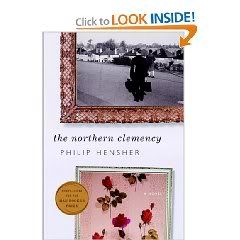The Northern Clemency
"The Northern Clemency" by Philip Hensher is an oddity, that's for sure. Following the doings (or, more accurately, non-doings) of a couple of families living in the suburbs of the Northern England (former) steel-making city of Sheffield, from the early 1970s into the 1990s, it is presented almost as a stream of consciousness, hopping from person to person or family to family as it follows its own particular narrative threads from scene to scene. It is hard to really grasp just who (or what) is meant to be at the centre of this epic rambling tale. Perhaps it's not the characters, or the places themselves, so much as the periods, especially the mid 70s and also the Maggie Thatcher years (especially the period of the Miners' Strike) which are quite effectively evoked, although sometimes a little out in the fine details.
The book is organised as just five chapters (or four and a half, if you take the author's numbering literally) which together span a massive 700-odd pages of narrative, with the action largely centred in Sheffield but also spilling out into London and, in the later pages, Sydney, Australia. Although born in London, Hensher himself spent his school and adolescent years in Sheffield at about the time portrayed in the first part of this book and it is easy to believe that some of this may indeed be semi-autobiographical. If so, one cannot help feeling that the author's memory is rather less than perfect, though, and also that the story is influenced as much by literary expedience as it is by actual experience. Parts of the tale are, if not wholly surreal, then nevertheless somewhat dream-like and much of it left me feeling very unsettled indeed. And while I recognised some aspects of the places and times in which I also grew up, there are also large chunks which are entirely unfamiliar to me and which I simply do not recognise at all. Or else are simply too stereotyped to be believable as anything other than cyphers.
Ultimately, I suspect, the book is about nothing so much as the ordinariness of everyday people (pointed up through the unstated but implicit observation that even "ordinary" people can have something quite extra-ordinary about them if only one looks carefully enough). And although nothing much really happens in this book (and some of the happenings are left frustratingly unresolved, or else simply fizzle out in unexpected and disappointing ways) it is easy to be drawn in and to be drawn along with the flow, simply to experience that flow, rather than out of any great desire to carried somewhere in particular. Which, I suppose, makes it a lot like life itself.
Labels: best-seller, books reviev, The Northern Clemency


